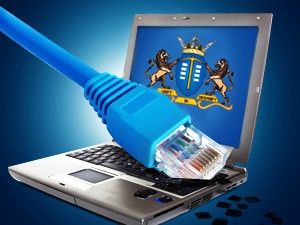
Seventy-five percent of Gauteng township schools have been connected to the Internet, said Gauteng education MEC Panyaza Lesufi.
Lesufi made the comments at an ICT industry breakfast hosted today, and noted connectivity plays a very important role in improving the education system.
"When I took office, I felt government was too slow for my liking to get schools connected."
According to Lesufi, his department used the connectivity of the Gauteng Online Schools Project (GOSP) to provide Internet connectivity to the schools. "Every school was connected with GOSP, but they were used as laboratories where people could check e-mails or send e-mails.
"I wanted this connectivity to go to the classrooms, so we just tweaked that programme, and moved it from being a lab to access the Internet, to connecting the classrooms."
The GOSP was launched by government to build a province-wide school computer network. Its aim was to create 25-seat computer labs with Internet and e-mail capabilities at all public schools in the province, to be used for curriculum delivery.
Lesufi added: "When people say MEC you are wasting money giving people tablets, [I say] I didn't buy tablets, those are devices that were bought by government in 2013 as part of GOSP... I didn't waste any money."
The department has also partnered with companies like Vodacom and MTN, and the Universal Service and Access Agency of SA to connect some of the province's townships schools, said Lesufi.
Access to smart devices
In 2014, the Gauteng Department of Education (GDE) announced it would embark on an initiative to create the classrooms of the future, which involved the switch from chalkboards to smartboards.
As part of the first phase of the project last year, the department sought to equip classrooms with high-speed broadband connectivity, laptops, and interactive electronic screens. The schools' entire curriculum content was also digitised.
This project saw the matric learners of 2015 receive tablet devices to better their learning experience. According to the department, it distributed 64 000 tablets to grade 12 learners in 2015.
The learners were also given free access to education Web sites between 5am and 9pm.
Stumbling blocks
Apart from having to provide ICT training to 160 000 teachers, theft is the major stumbling block in the department's plans to provide an ICT-focused education system in the province.
It's unfortunate the ICT strategy comes with its challenges, Lesufi noted.
"We have retrieved 52 000 tablets from the learners, 8 000 were reported stolen and cases of theft have been reported to different police stations. Four-thousand tablets are still outstanding; however, the retrieval process is ongoing," according to the GDE.
The South African Police Service has even told the department the theft of tablets will affect its crime stats, according to Lesufi.
However, Lesufi said the benefits of equipping learners with smart devices far outweigh the short-term theft challenges.
As of this week, the department began the next phase of the tablets rollout to the 2016 grade 12 learners in the province's township schools, with 65 000 matric learners expected to receive tablets as per the paperless classroom initiative.
"We are anticipating that all grade 12 learners will have their educational tablets by April 2016," says the department.
Invest in the future
Gauteng has committed to invest R7 billion in ICT in education over the next four years, said Lesufi.
According to Lesufi, R5 billion of the investment will come from the Gauteng government, while the remaining R2 billion is expected from partnerships with private sector organisations.
Government is hopeful the private sector will contribute the rest of the funds required to drive ICT in education in schools, he noted.
ICT in education is the most important aspect for the department, he commented. Lesufi called on the private sector to get involved by providing necessary resources and funds to see the GDE's initiatives realised.
Share